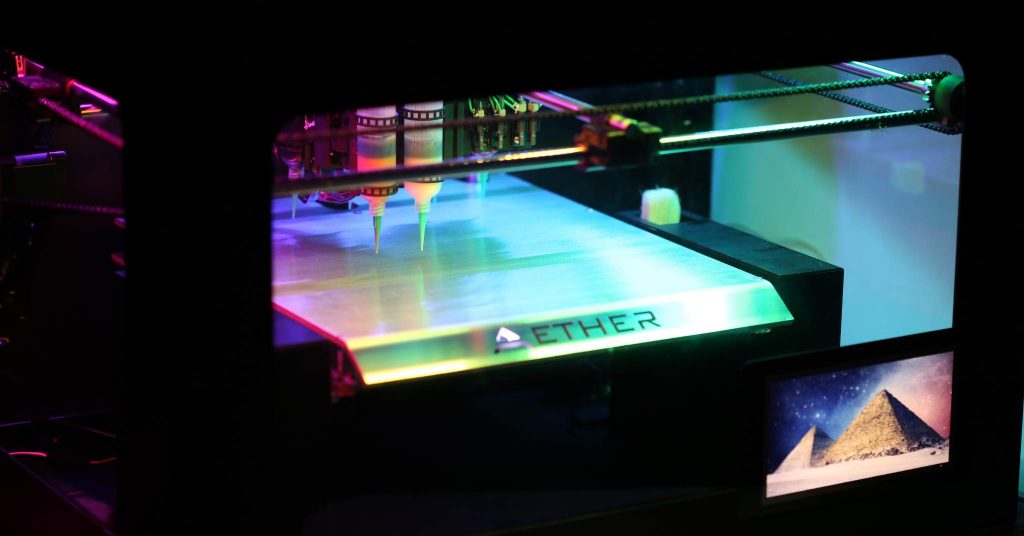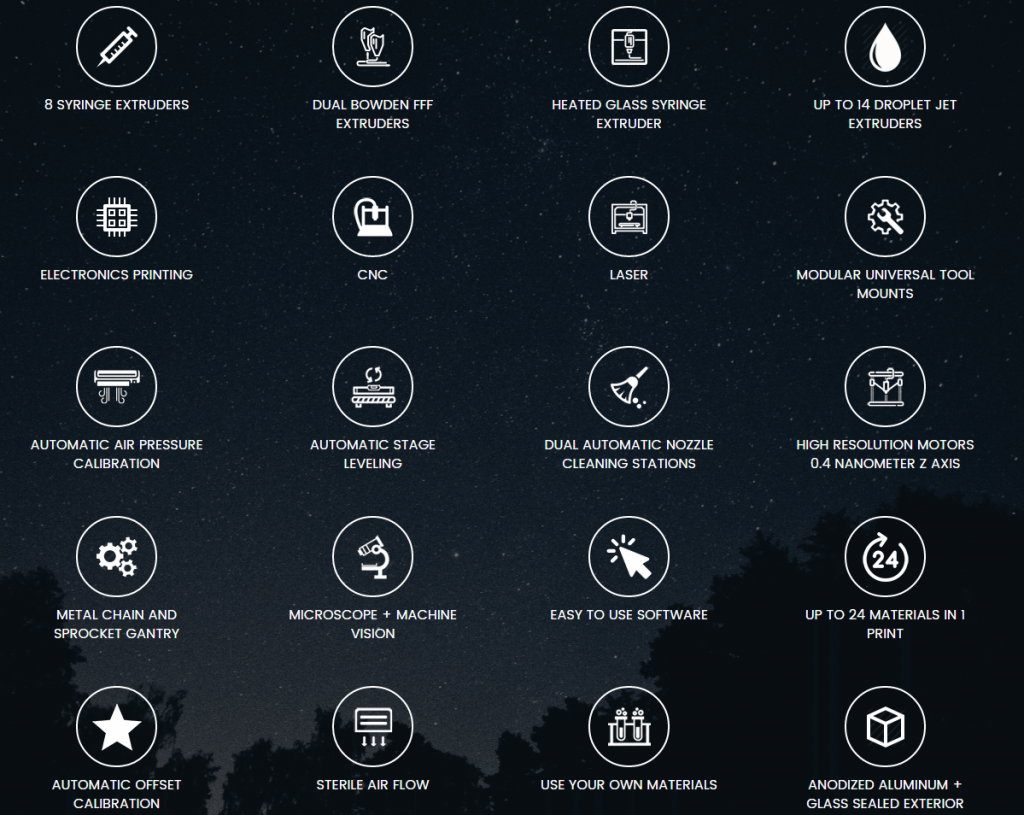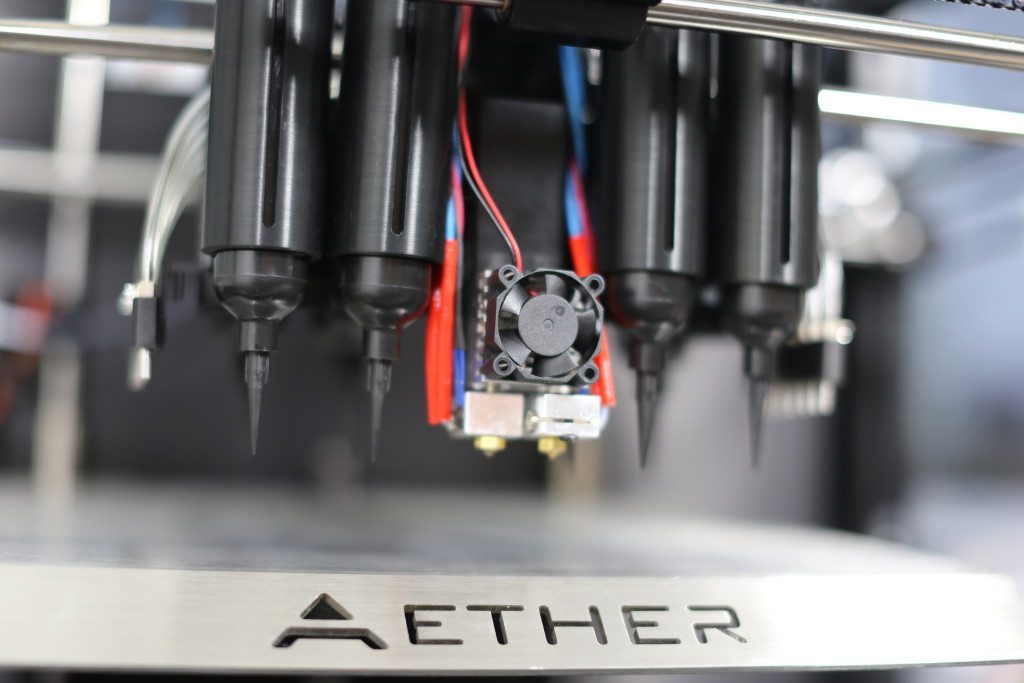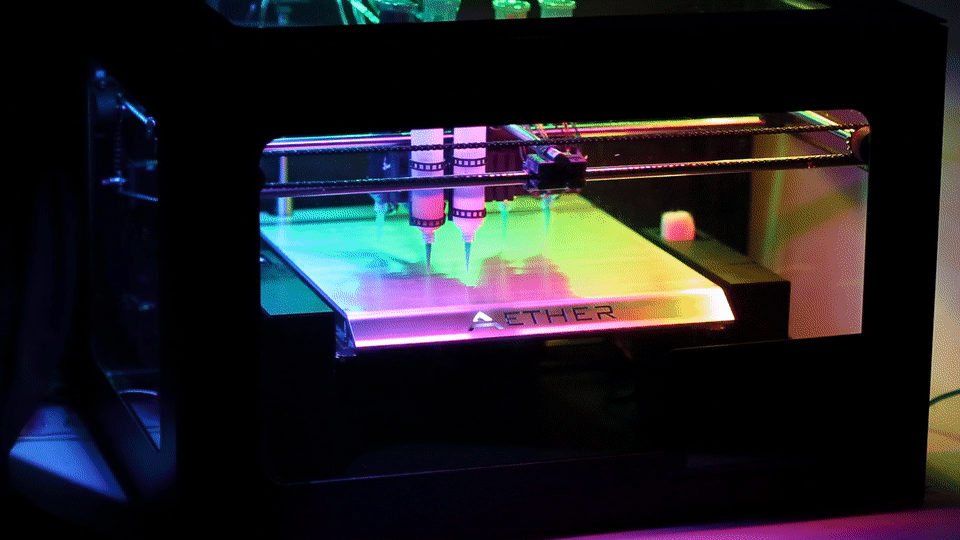Aether has entered into an array of 3D bioprinting collaboration agreements with some of the world’s top universities and government backed institutions. The Aether 1, which is still yet to be fully unveiled, was first announced back in March 2016.
Each university or institution will receive an Aether 1 Bioprinter beta unit to conduct one or multiple research projects in a tremendously wide range of fields such as biotechnology, chemistry, mechanical engineering, tissue engineering, materials science, nanotechnology, pharmacology, implantable device research, 3D electronics printing, and more.

Beta-testing
This world-wide beta test will provide an incredibly effective way for the San Francisco based start-up to refine the features of their bioprinter. By using top researchers from a variety of fields as testers for the Aether 1, they will be able to perfect features and fix any potential issues. Aether is also offering to assist each lab in any way possible to facilitate the successful completion of each research project, including the development of custom features. This may lead to additional features and capabilities on the final design before the general release of the printer.
“This is a large-scale bioprinting research collaboration that’s unlike anything ever previously attempted. We’re honored to be working with such an amazing group of researchers. Before we even had the chance to officially announce that we were seeking beta users, each of these researchers proactively reached out directly to Aether to find out how they could get an Aether 1. We took that as a sign that this group is extremely eager to innovate with the newest and most powerful bioprinting technology, which makes them the perfect choice to be the very first people to gain access to a completely new kind of bioprinting tool. It’s also an excellent sign that there’s a lot of pent up demand for a product like this that tremendously advances bioprinting technology for an extremely low cost.”
-CEO Ryan Franks
Aether 1
It will be interesting to see how Aether 1 compares to Rokit’s Invivo, which was also recently given a release date. Aether claims that their printer is 12 high-tech machines in 1 magical device, and with the specs they have listed on their website along with a $9,000 price tag, it is hard to fault their use of the term ‘magical’. The problem with a machine having so many different functions however, is that it may not excel at all of them. Hopefully the beta test will iron out any kinks in their functionality, and the Aether 1 will prove to be a good all round machine.

Aether have also unveiled a printhead with 24 extruders, giving the machine the ability to combine 24 different materials in a single print. This is unheard of, and the results it could produce will be highly anticipated.

Participating institutions
Participating universities for the collaboration are:
- Cambridge University – Department of Engineering
- Northwestern University – Department of Materials Science and Engineering
- National University of Singapore – Department of Biomedical Engineering/Department of Materials Science and Engineering
- McGill University Health Centre – Montreal General Hospital Orthopaedic Research Laboratory
- Dayton University – Chemical and Materials Department
- University of Minnesota – Bioprinting Facility
- McMaster University – Department of Mechanical Engineering, under supervision of Professor Ravi Selvaganapathy
- Tuft’s University – Computer and Electrical Engineering Department
- University of South Australia – School of Pharmacy and Medical Sciences
- Indiana University Purdue University of Indianapolis – School of Informatics
- University of Washington – UW/Harborview Medical Center Orthopaedics Department
- University of Waterloo – Biomedical Engineering Program/Systems Design Engineering
The government backed institutions will be the Swiss Center for Electronics and Microtechnology (CSEM) and Embrapa Genetic Resources and Biotechnology (“Embrapa”) – Laboratory of Nanobiotechnology (“LNANO”), Donations of the Aether 1 will also be made to the National Museum of New Zealand Te Papa Tongarewa – Learning Lab and Range of Motion Project (“ROMP”).
Aether hopes that these collaborations will mark the end of overpriced and underpowered bioprinting technology that is currently dominating the market.

Featured image: 24 extruder printhead. Image:Aether


